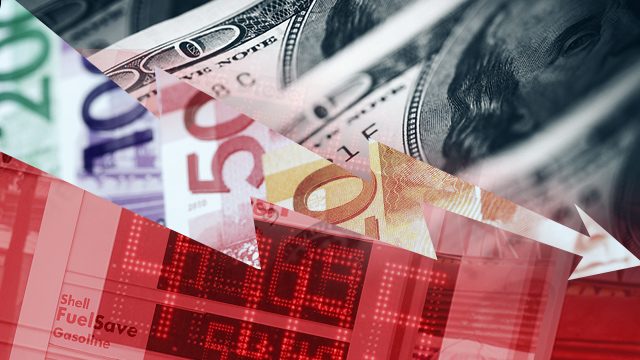SUMMARY
This is AI generated summarization, which may have errors. For context, always refer to the full article.

PARIS, France – Venezuela today, Zimbabwe a decade ago, before that the rump Yugoslavia, Hungary, and Germany. An explanation of hyperinflation where prices soar, banknotes get more zeros, and poverty and hunger spread.
How does inflation start soaring?
“By cranking up the banknote printing presses,” said Nicolas Veron, an economist at the European think tank Bruegel.
If printing money is the trigger for hyperinflation, the real problem is a hole in public finances.
“When a government doesn’t have money, it is very difficult to resist the temptation to start rolling the presses,” said Veron.
In extreme situations, such as conflicts and regime changes, the temptation is even greater.
Hyperinflation is generally considered to exist when prices rise by more than 50% in one month.
In Venezuela, inflation is expected to hit 1,000,000% by the end of the year.
In Zimbabwe, the government was forced to introduce a 100-trillion-dollar note – though it could barely buy a loaf of bread.
However the worst hyperinflation was in Hungary in 1946 when prices doubled every 15 hours, according to the Cato Institute. (READ: Federalism might lead to hyperinflation – economists)
What are the consequences?
If the rapid creation of money is the cause of hyperinflation, the effect is a collapse of economic activity along with shortages of goods and hunger.
Venezuela is a typical case, according to economist Philippe Waechter at asset manager Ostrum. The authorities have printed tons of money and economic output plunged 40% between 2015 and 2017.
“You have plenty of cash, but nothing to buy, and as the money is plunging in value you can’t import anything,” he said. (READ: Venezuela’s ‘millionaires,’ the new poor)
The rapid deterioration of the value of the currency means that people don’t want to accept it.
Hyperinflation quickly leads to goods disappearing from shops, with governments having to introduce rationing. Hunger spreads.
“Venezuelans lost an average of 11 kilos (24 pounds) in 2017 compared to 2016,” noted Waechter.
Many people also try to flee the country.
What solutions are there?
Besides turning off the presses, the authorities need to regain the confidence of the public that it won’t recklessly print more money and get its finances in order.
Today, countries can turn to the International Monetary Fund (IMF), which provides loans only if governments pursue an agreed economic plan that aims to heal public finances and encourage growth.
The IMF lending can thus plug budget gaps while the conditionality of the help works to restore confidence.
Countries can also try to introduce new currencies, link them to foreign currencies, or abandon them altogether.
Venezuela introduced Monday, August 20, a new bolivar that lobbed 5 zeros off the old currency. But it is unclear if the currency’s anchor to the country’s widely discredited cryptocurrency, the petro, which is in turned linked to the price of Venezuelan oil, will restore confidence.
“Removing zeros can have a psychological effect, but it isn’t worth anything if other measures aren’t taken,” said Veron at the Bruegel think tank. (READ: Venezuela’s business leaders hit Maduro’s new banknotes)
Yugoslavia in 1994 issued a new currency, the novi dinar, and pegged it to the deutsche mark to restore confidence.
Zimbabwe just abandoned its dollar in 2009, letting people trade in foreign currencies.
Such currency substitution is often also called dollarization of an economy.
While resolving the question of confidence, it isn’t always a panacea. Zimbabwe found this out as the lack of foreign banknotes in the country held back economic activity. It eventually introduced a parallel currency in 2016 which has since slid in value. – Rappler.com
Add a comment
How does this make you feel?
There are no comments yet. Add your comment to start the conversation.